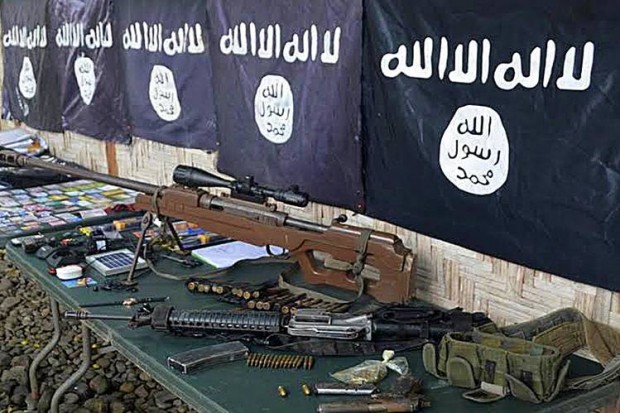ISIS is taking shape rapidly in Libya, the West watches from distance

Wall Street Journal
Islamic State fighters launched a naval assault in northern Libya last week, dispatching three boats that fired on an oil terminal at Zueitina. Local guards repelled that attack, but it was a reminder of Islamic State’s growing capabilities and reach beyond its heartland in Syria and Iraq. Too bad Western capitals seem unprepared to stop it.
The Zueitina episode was the latest in a string of Islamic State attacks in Libya since the new year. On Jan. 8 an Islamic State truck bomb hit a police academy in Zliten, western Libya, killing 65 people. The same week Islamic State arson attacks ignited two other Libyan oil terminals. Islamic State draws much of its revenue by marketing oil from captured fields in Iraq and Syria.
Following the Zletin truck bombing, the European Union—300 miles across the Mediterranean—offered $108 million in security assistance to Libya. The aid is supposed to take the form of technical and logistical support to the newly formed Libyan unity government, currently based in neighboring Tunisia.
The problem is that the new government—the product of a shaky agreement last month between the internationally recognized government based in Tobruk and the Islamist-backed General National Congress, headquartered in Tripoli—remains a mostly notional entity. The competing governments have been at war for years, even as they both fight Islamic State, and elements of both governments have rejected the unity deal, as have some of their respective tribal and militia supporters. Whether those political divisions can be resolved is anyone’s guess, but in the meantime the jihadist threat from Libya is growing larger.
That was underscored in December when Islamic State paraded a police force in the coastal city of Sirte, where it also holds the airport. Islamic State now controls a long strip of the coastline between Tripoli and Benghazi, territory that also serves the group’s propaganda purposes in claiming to be an Islamic caliphate.
Britain’s Prime Minister David Cameron has pledged to target Islamic State in Libya, while the U.S. last year conducted limited air strikes against jihadists. But Western leaders insist they are waiting for a political solution to the civil war before intervening directly. A negotiated settlement would be welcome but could take months if not years to materialize. That gives Islamic State and other jihadist groups ample time to profit from the chaos.
The West’s central interest in the region isn’t to salvage a Libyan state, assuming that’s even possible. It’s to ensure that the territory doesn’t become a haven for jihadists with access to oil revenues and a dangerous perch on the Mediterranean. A dedicated NATO bombing campaign, if necessary combined with limited ground forces, to destroy Islamic State in Libya would send the valuable signal that the West won’t tolerate such a threat so close to its shores. That signal might also give Libya’s factions more incentive to reconcile, but in any case it would make the world safer.
How to submit an Op-Ed: Libyan Express accepts opinion articles on a wide range of topics. Submissions may be sent to oped@libyanexpress.com. Please include ‘Op-Ed’ in the subject line.
- Libya’s HCS invites applicants for key state roles - December 31, 2023
- UK calls on Iran to prevent escalation in Israel-Hamas conflict - November 05, 2023
- Libyan Interior Minister: Immigrant shelter costs a fortune - November 05, 2023


